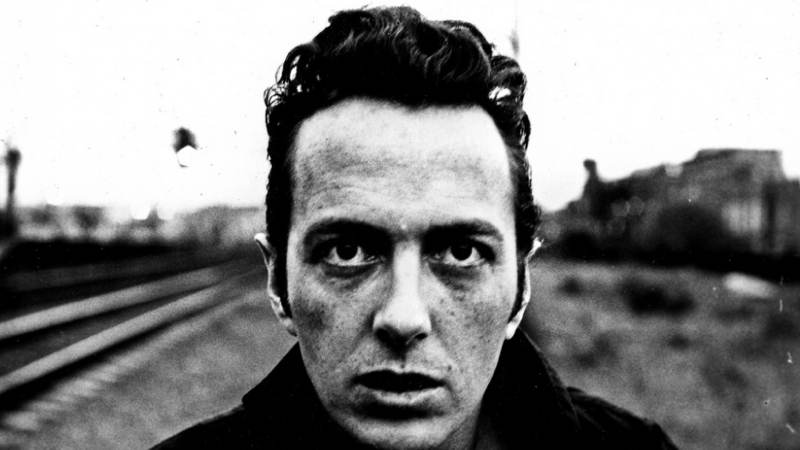
Joe Strummer: 1952-2002
James Mann
“From every dingy basement on every dingy street/I hear every dragging handclap over every dragging beat/That’s just the beat of time-the beat that must go on/If you been trying for years-then we already heard your song”
–Joe Strummer, “Death Or Glory” from The Clash’s album London Calling
“strummer”
In a year that has seen far too many legends fall, the death of Joe Strummer, agent provocateur of The Clash – “The Only Band That Matters,” as some record company wag put it – hits hard. Maybe it’s the time of year, maybe the weariness of living under the prospect of war, but somehow Joe Strummer dying “quietly at home” seems so wrong, so unbelievable.
Unbelievable, largely because Joe Strummer never did anything quietly.
I saw The Clash for the second time on the Combat Rock tour, when perhaps, in retrospect, the bloom was starting to fade on their rose. The initial adrenal rush of punk had, by 1982, started to pause and catch its breath. The Pistols were long gone, The Jam, Buzzcocks, The Damned, and the dozens of other five-minute miracles had either broken up or gotten fat. But here were The Clash, still fighting the good fight and miracles of miracles, with a song on the charts. “Rock The Casbah” was a favorite in those early days of MTV, and dammit, maybe it wasn’t a continuation of the righteous anger of “White Riot” or “Clash City Rockers,” but it was catchy as hell. Joe Strummer and Mick Jones had learned early on that to survive was to evolve. They weren’t the same people who had made such a furious noise on their debut, or the snarling popsters of their masterpiece London Calling, but The Clash circa 1982 was still a formidable rock and roll band, and on that night at Atlanta’s Fox Theatre, they fucking slayed.
But as impressive as the music was that night – and it still ranks high in my list of best shows – two things have stayed in my mind from that night. For some reason, the band had enlisted (or been taken captive by) a troop of dancers, who flitted around the stage in a dervish, making a surreal statement at a punk rock show. At one point a dancer fluttered his hands in Strummer’s face, and the oh so tough punk rocker for a brief moment dropped the snarl and laughed. It was that humanity that connected The Clash to their listeners. As they always said, yes, they were a political band, but it was “personal politics,” always in small letters, always about the person. They cared.
Leaving the show that night, we walked onto Peachtree Street, Atlanta’s main thoroughfare, and into a riot. Or at least, as close as sleepy, apathetic Atlanta gets to a riot, anyway. Skinheads on one side of the street, shouting curses at a group on the other side of the road. A few bottles were smashed, and my friend and I attempted to shelter his little sister from the hooves of policemen’s horses, and I realized at the time that something like this, if we survived, was certainly different than most shows we had been to. Something happened – something brought about, in some fashion, by the music of Joe Strummer and The Clash. That was Joe Strummer’s gift. Things happened. It was intoxicating, heady.
Over the years The Clash had remained firm on resisting the increasing calls to regroup, tour the world, and perhaps make some money (most likely for once in their career), and to their (now) eternal credit, they never did. Mick Jones had Big Audio Dynamite, Paul painted, and Joe led a band, acted in movies, and generally grew older without growing soft. He was working on a project with Dave Stewart and Bono about Nelson Mandela when he died, and in interviews, his punk rock soul still shone with a fury, denouncing Tony Blair and the current state of war. The Clash were due to be inducted into the Rock and Roll Hall of Fame next year – the institution wouldn’t be correctly named without them – and Strummer and Jones had recently performed together, so it appears that the world couldn’t let go of Joe Strummer and The Clash.
Instead, Joe let go of the world. ◼












